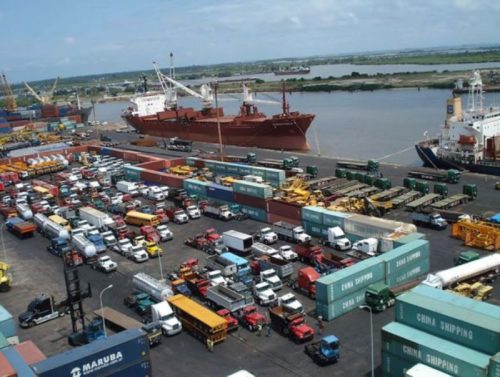
Nigerian ports handed a cargo throughput of 38.5 million metric tons in the first half of 2019.
The volume represents an increase of eight percent over the cargo throughput of 35.91 million metric tons over the corresponding period of 2018.
The number of ocean-going vessels that called at the nation’s six major seaports within the period under review also increased from 2,008 to 2,111 – representing a growth of 5.2 percent.
The figures are contained in the Nigerian Ports Authority (NPA) half-year operational report, a copy of which was obtained by SHIPS & PORTS.
According to the report, the gross registered tonnage (GRT) of ocean-going vessels completed in the first half of 2019 stood at 67 million metric tons – representing an increase of 3.3 percent over the 64.89 million metric tons handled at the ports from January to June 2018.
The report also showed that container traffic recorded within the period stood at 901,395 Twenty Equivalent Units (TEUs); a growth of 16.2 percent over the 775,842 TEUs handled in the corresponding period of 2018.
Delta Ports, according to the report, witnessed significant growth as it handled 300 vessels compared to the 268 vessels handled by the port in the first six months of 2018. Rivers Ports handled 160 vessels while Calabar Port handled 82 vessels during the period. Cargo throughput at the Delta Ports rose by 52.2 percent year-on-year from 2.89 million metric tons recorded in the first half of 2018 to 4.41 million metric tons recorded in the first half of 2019.
Cargo throughput at the Tin Can Island Port in the first half of 2019 stood at 7.79 million metric tons; a growth of 12.7 percent over the 6.92 million metric tons handled in the corresponding period of 2018.
The significant growth recorded in Delta Ports, according to the NPA report, was as a result of the recent dredging of the port channel, which has increased the number of vessels, especially petroleum tankers, calling at the port.
